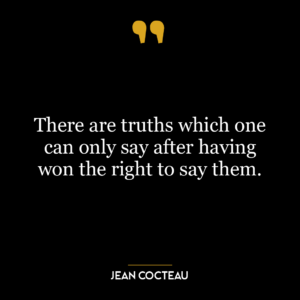This quote suggests that happiness is not something to feel guilty about, and conversely, that being miserable does not equate to being virtuous or morally superior. Often, society tends to romanticize suffering, perceiving it as a sign of depth, strength, or nobility. This quote challenges that notion, asserting that there is no inherent virtue in suffering or misery.
In the context of personal development, this quote can be interpreted as an encouragement to pursue happiness and joy without guilt or shame. It suggests that we should not equate hardship and suffering with personal growth or moral worth. Instead, we should recognize that happiness is not only permissible, but also desirable, and that it can coexist with personal growth and moral integrity.
In today’s world, this quote could be applied to societal pressures and expectations. Often, people are expected to work excessive hours to the point of burnout, sacrificing their happiness in the pursuit of success. This quote challenges that expectation, suggesting that happiness should not be sacrificed for success, and that success achieved at the cost of happiness is not truly success at all.
Furthermore, this quote could also be a critique of the social media culture that often glorifies suffering and hardship, portraying them as signs of authenticity or depth. It suggests that we should not feel compelled to project an image of suffering or hardship to be perceived as authentic or deep, and that it’s okay to be happy and to share that happiness with others.
In essence, this quote encourages us to reject societal pressures and expectations that equate suffering with virtue and happiness with sin. It invites us to embrace happiness as a desirable state of being, and to pursue it without guilt or shame.





